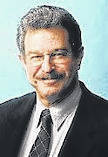
Things were never hotter in the White House’s lesser-known oval-shaped room, the one down in the basement, than they were for 11 minutes Wednesday afternoon.
And that’s really saying a lot. Because long before that oval room was elegantly re-purposed into its present function as the White House Diplomatic Room, it housed the White House’s huge roaring furnace. On just about every December day, from 1837 to 1902, it would have been pumping heat throughout the gleaming white mansion.
But this Wednesday, starting at 1 PM and lasting just 11 minutes, the old furnace room generated a very different sort of heat — a blazing hot controversy that flashed around the world with incendiary consequences. President Donald Trump stood in the Diplomatic Room and delivered a message that seemed to instantly fire up passions and tempers throughout the Middle East.
If you were to just read his words literally, you might well wonder what the fuss and fury were all about. Because the words Trump spoke, in and of themselves, could conceivably be read as a hopeful, positive message — if those words had been spoken at the end of a months-long diplomatic process that was thoughtfully conceived and carefully executed to intelligently convince the region’s players to want to consider entering a new era of prospective peacemaking.
But no. This was a Trump thing; so there was none of that advance stuff. It all just erupted as if it were a helter-skelter happenstance. Trump decided to instantly declare the United States was recognizing that Israel’s capital is Jerusalem (a designation that presumably includes East Jerusalem, which Israel seized from Jordan in 1967, when all its neighbors were plotting to push Israel into the sea). Also, Trump said he has begun plans to move the U.S. embassy from Tel Aviv (where all the world’s embassies are) to Jerusalem.
So Trump used nice words to say he was just recognizing reality — as his idea of promoting a new era of peace. But his words triggered a predictable Arab reaction that ran the gamut from rage to outrage: The Palestinians told the world to prepare for three days of “rage.”
Trump began by telling us what all the world knows (but all the world’s statespersons diplomatically don’t dwell upon). Jerusalem is where Israel’s Knesset, prime ministers and presidents work; Tel Aviv is where all the embassies are. In 1995, Congress passed a law saying the U.S. embassy should be in Jerusalem. So all presidents since routinely signed waivers putting off the move.
“Some say they lacked courage but they made their best judgments based on facts as they understood them at the time,” Trump said. “After more than two decades of waivers, we are no closer to a lasting peace agreement between Israel and the Palestinians. … While previous presidents have made this a major campaign promise, they failed to deliver.
“Today, I am delivering.”
Trump’s top national security advisers reportedly counseled against making this sudden unilateral move. Israel’s government loved it but all other U.S. allies counseled against it. So did Pope Francis. All warned of bloodshed and that America was diminishing its ability to broker a settlement. But Trump did it his way, anyway.
But: Why now?
Why did Trump feel he needed to act as he did, at this precise moment — when all was relatively quiet on the Israeli-Palestinian front — against the advice of just about everyone (except Israel)? Here in the wide, wide world of punditry, all analysts began to feel as if they had just fallen through the looking glass. Talking heads and tweeting hands began to recycle diplomatic doublespeak doubletalk.
While I have no authoritative source to hang this on, I believe that I understand why Trump took this action at this moment. Special counsel Robert Mueller has scored a major success in convicting retired Gen. Michael Flynn, Trump’s first national security adviser, who is apparently now cooperating with the probe. Trump knows what else might be discovered. And that probably explains Trump’s recent uneven actions that sometimes appear to be borderline panic.
Trump clearly wanted to deflect our attention away from Mueller’s Russia probe. I believe that’s why he chose this moment to fulfill his risky 2016 campaign promise to Israel.


